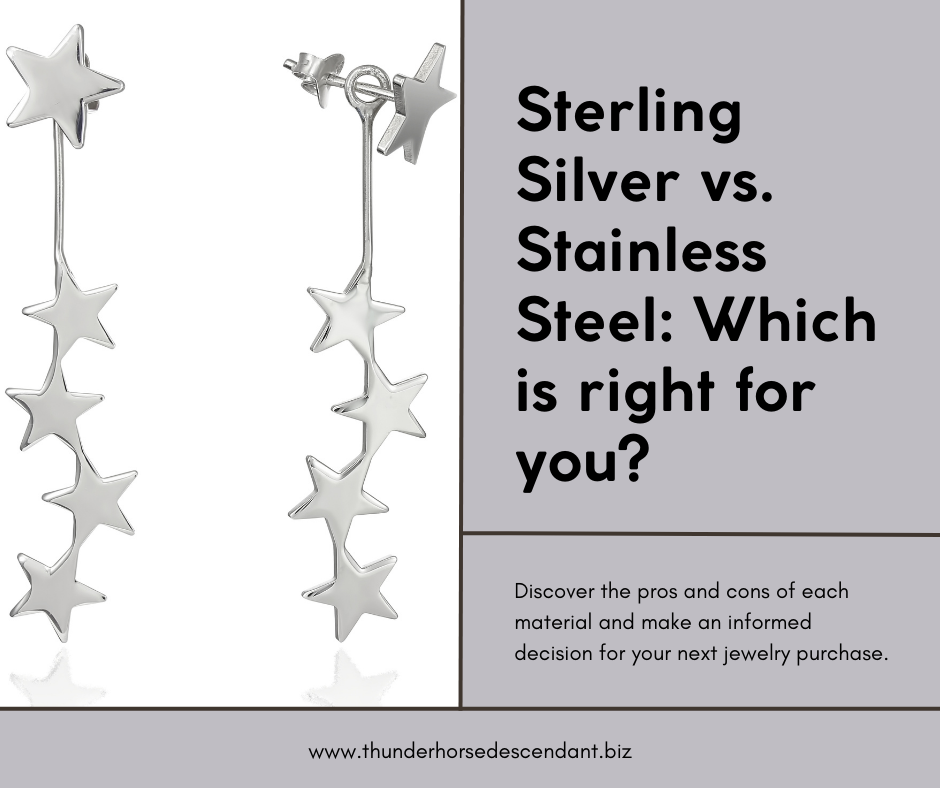Posted by Randee Brown on 13th Oct 2023
Sterling Silver vs. Stainless Steel: Which is right for you?

When comparing silver and stainless steel in terms of hypoallergenic properties, both metals can be suitable choices for individuals with metal allergies or sensitive skin. However, there are some differences to consider:
1. Silver:
- Sterling Silver: Sterling silver, which is 92.5% pure silver mixed with 7.5% other metals (usually copper), is a common choice for jewelry. It is generally hypoallergenic for most people, as it doesn't contain allergenic metals like nickel or cobalt.
- Tarnishing: One drawback of silver is that it can tarnish over time when exposed to air and moisture. This can affect the appearance of the jewelry but doesn't usually cause allergic reactions.
- Maintenance: Silver jewelry may require more maintenance to prevent tarnishing, such as regular cleaning and storing in a dry place.
- Purity: Some individuals with very sensitive skin may still experience irritation with sterling silver, especially if they react to the copper content. In such cases, higher-purity silver (like fine silver) might be a better option.
2. Stainless Steel:
- Hypoallergenic: Stainless steel is known for its hypoallergenic properties. It doesn't contain allergenic metals like nickel, making it a safe choice for most people with metal allergies or sensitive skin.
- Corrosion Resistance: Stainless steel is highly resistant to corrosion and tarnish. This means that it maintains its appearance and doesn't require extensive maintenance.
- Strength and Durability: Stainless steel is a strong and durable metal, making it suitable for everyday wear. It can withstand wear and tear without easily bending or breaking.
- Variety of Finishes: Stainless steel jewelry comes in various finishes, allowing for a range of design possibilities.
Which to Choose:
The choice between silver and stainless steel as hypoallergenic metals depends on your specific needs and preferences. Both can be suitable options, but here are some considerations:
- If you prefer the classic, elegant look of silver and are not highly sensitive to metals, sterling silver is an excellent choice. Just be prepared to invest some effort in preventing tarnish.
- If you have a known metal allergy, sensitive skin, or want a low-maintenance option, stainless steel is a reliable choice. It offers durability and a wide range of design possibilities while being hypoallergenic.
In summary, both silver and stainless steel can be hypoallergenic, but stainless steel may be a more reliable choice for those with known metal allergies or those looking for low-maintenance jewelry. However, if you prefer the look of silver and are not allergic to it, sterling silver is a beautiful option with proper care.
These are my opinions, allegedly based on things I have read.

